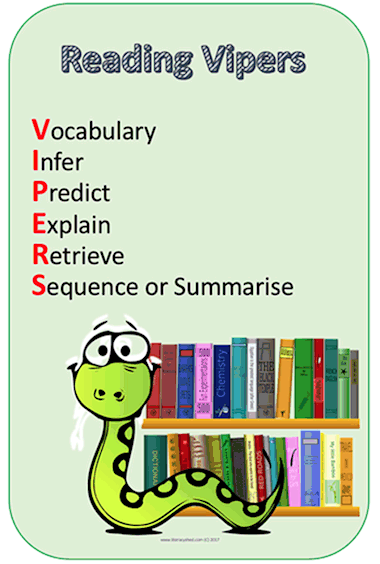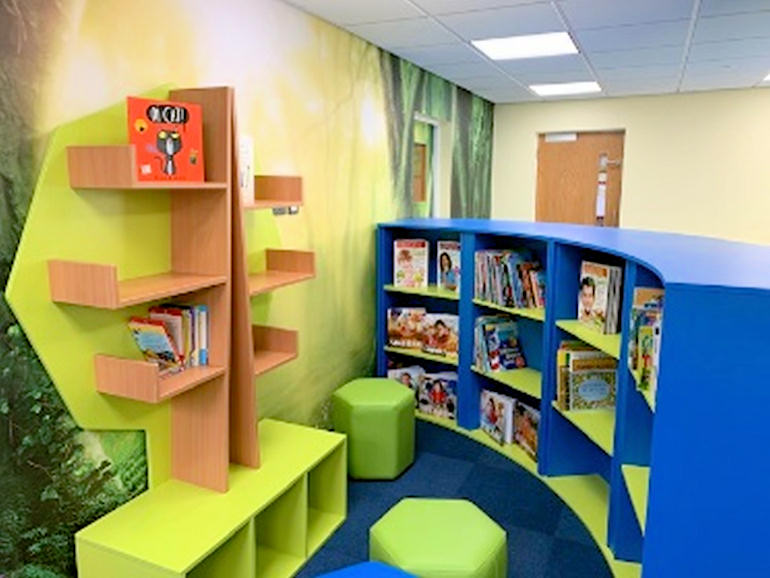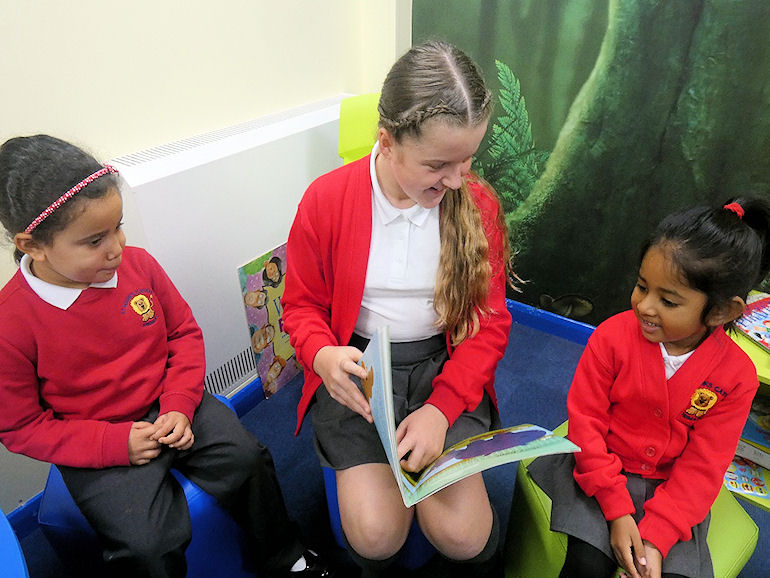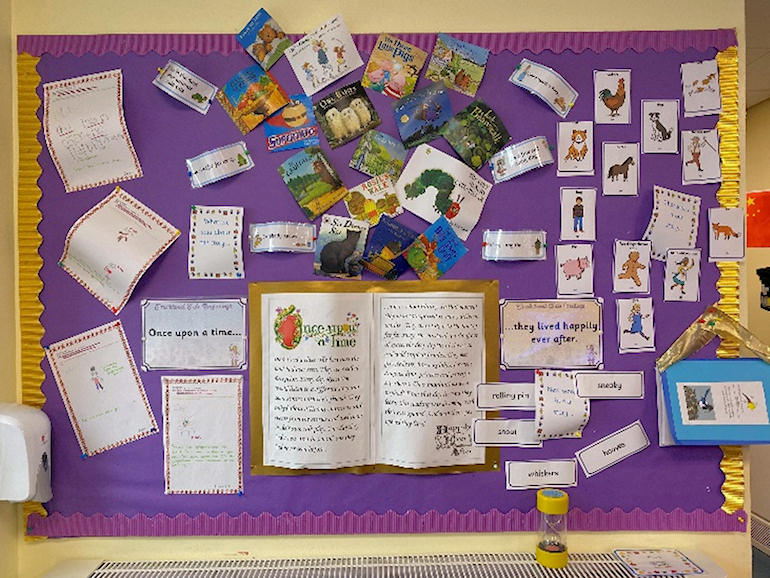Reading
Reading Intent
It is our intent at St. Mark’s that EVERY child becomes a confident and fluent reader and that every child can speak accurately, confidently and with passion about books they have read.
We intend to ensure all pupils to read widely across both fiction and non-fiction to develop knowledge of themselves and the world in which they live, to establish an appreciation and love of reading, to gain knowledge across the curriculum and to develop their comprehension skills.
It is our intention to ensure that, by the end of their primary education, that all of our children will be able to read fluently, and with confidence, in any subject in their forthcoming secondary education.
Reading Vipers
At St. Mark’s children are taught the skills of reading (outlined in the National Curriculum and the KS1 and KS2 test domains) through the use of VIPERS.
VIPERS is an anagram to aid the recall of the 6 reading domains as part of the UK’s reading curriculum. They are the key areas which we feel children need to know and understand in order to improve their comprehension of texts.
The six domains focus on the comprehension aspect of reading and not the mechanics: decoding, fluency, prosody, etc. As such, VIPERS is not a reading scheme but rather a method of ensuring that teachers ask, and students are familiar with, a range of questions. They allow the teacher to track the type of questions asked and the children’s responses to these which allows for targeted questioning afterwards.
We have developed a progressive set of VIPERS for each year group:

We LOVE to Read!
At St. Mark’s we LOVE to read! Reading is at the centre of all that we do and we recognise how important reading is to support children in later life.
At St. Mark’s we have a personalised reading spine which is a collection of recommended books which are considered to be ‘must-reads’ for everyone. The books in this collection consist of class core texts, recommended reading for pleasure books and a wide range of non-fiction texts and poetry.
Each book has been carefully chosen to stretch vocabulary, expose children to different structures and timeframes, encourage critical and analytical thinking and promote a love of reading.
Following this reading spine provides equality of opportunity for all children; ensuring all St. Mark’s children will leave school having had exposure to wide ranging, linguistically varied and intellectually stimulating collection of texts.
- St Mark’s Reading Spine – 2024/25

Our School Library
Inside the library, you will find a huge range of books to suit all different abilities and interests.
Our library is used on a regular basis by all of the children in the school.
We have a highly trained Library Team of Year 6 pupils who support children in the library and are always happy to share a book with the children. We also have class librarians, who help with the day to day running of the library and promote a love of reading in their classrooms.


Reading Around School
Every classroom has a wide range of books that are appropriate for the reading ages of the children within the class. Also, in each class and around school, there are exciting reading displays. These displays are there to engage children with reading and also to support children during reading lessons.
Our librarians have also planned and designed a ‘Reading Hut’ on our school playground. This is due for completion in Autumn 2024.


